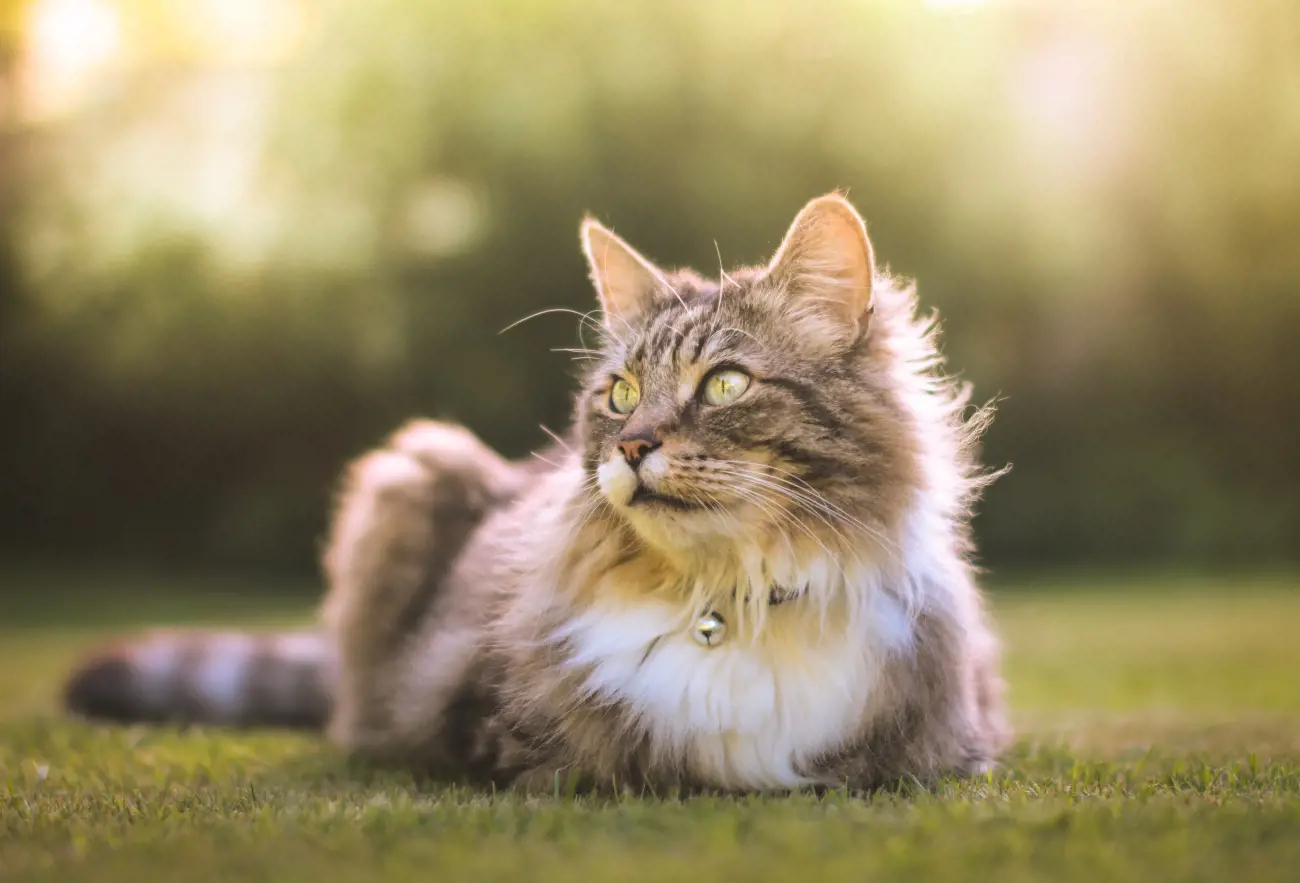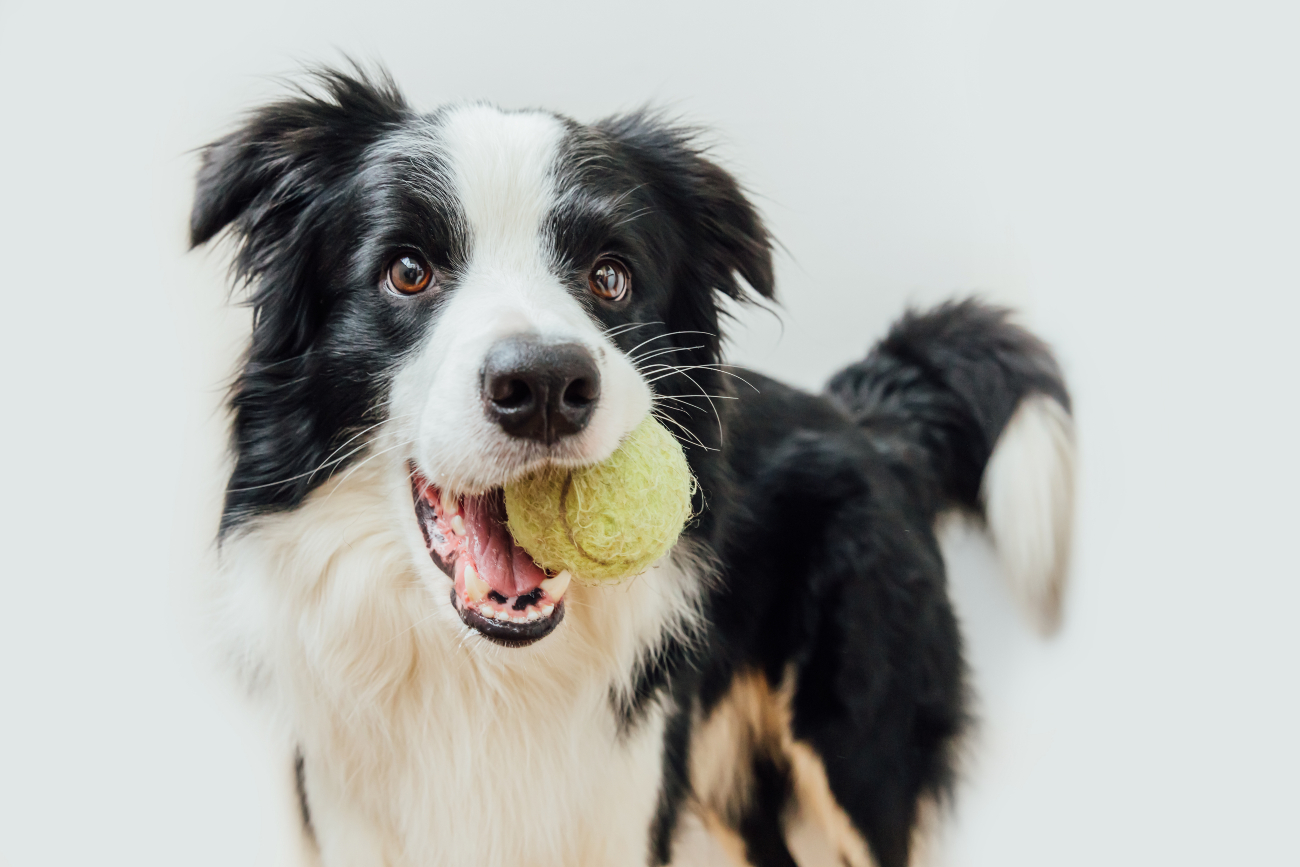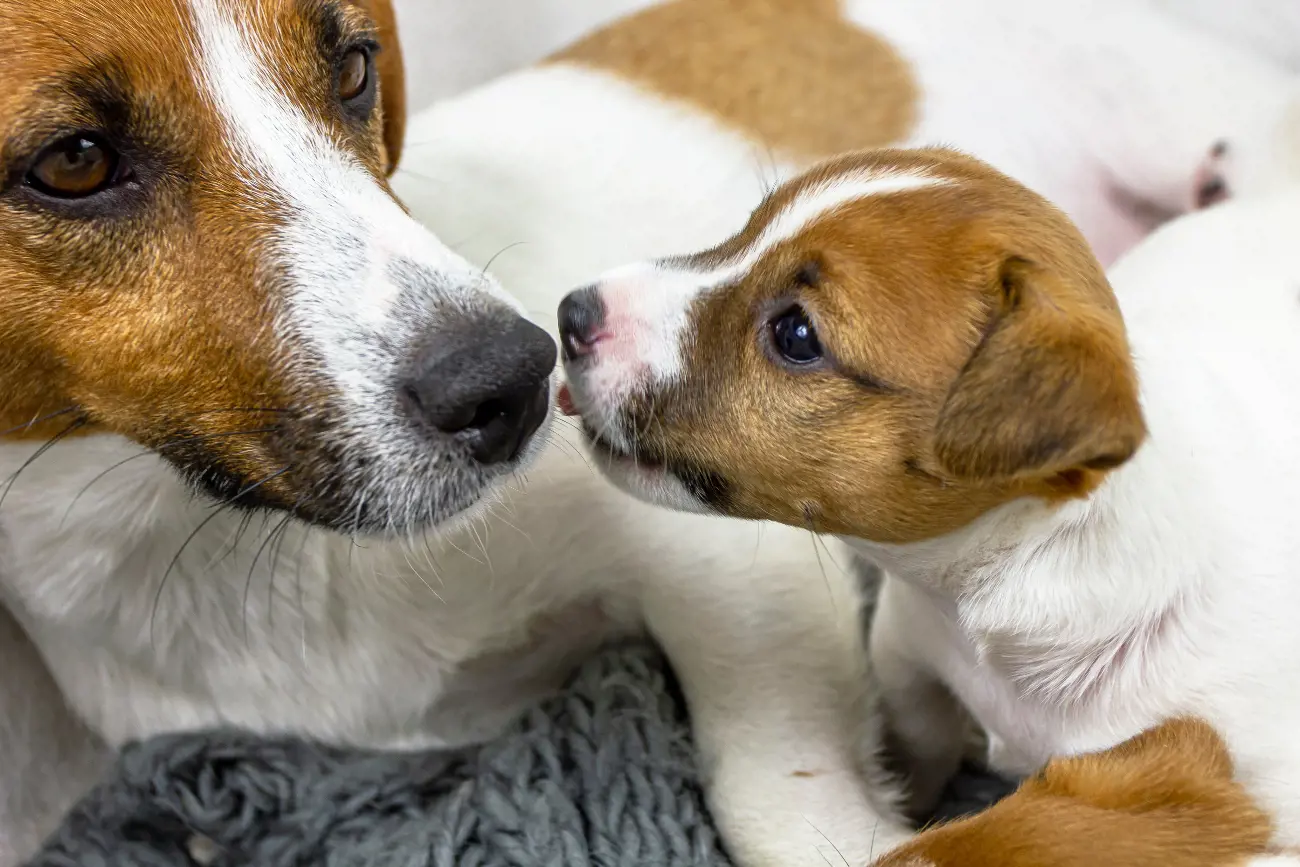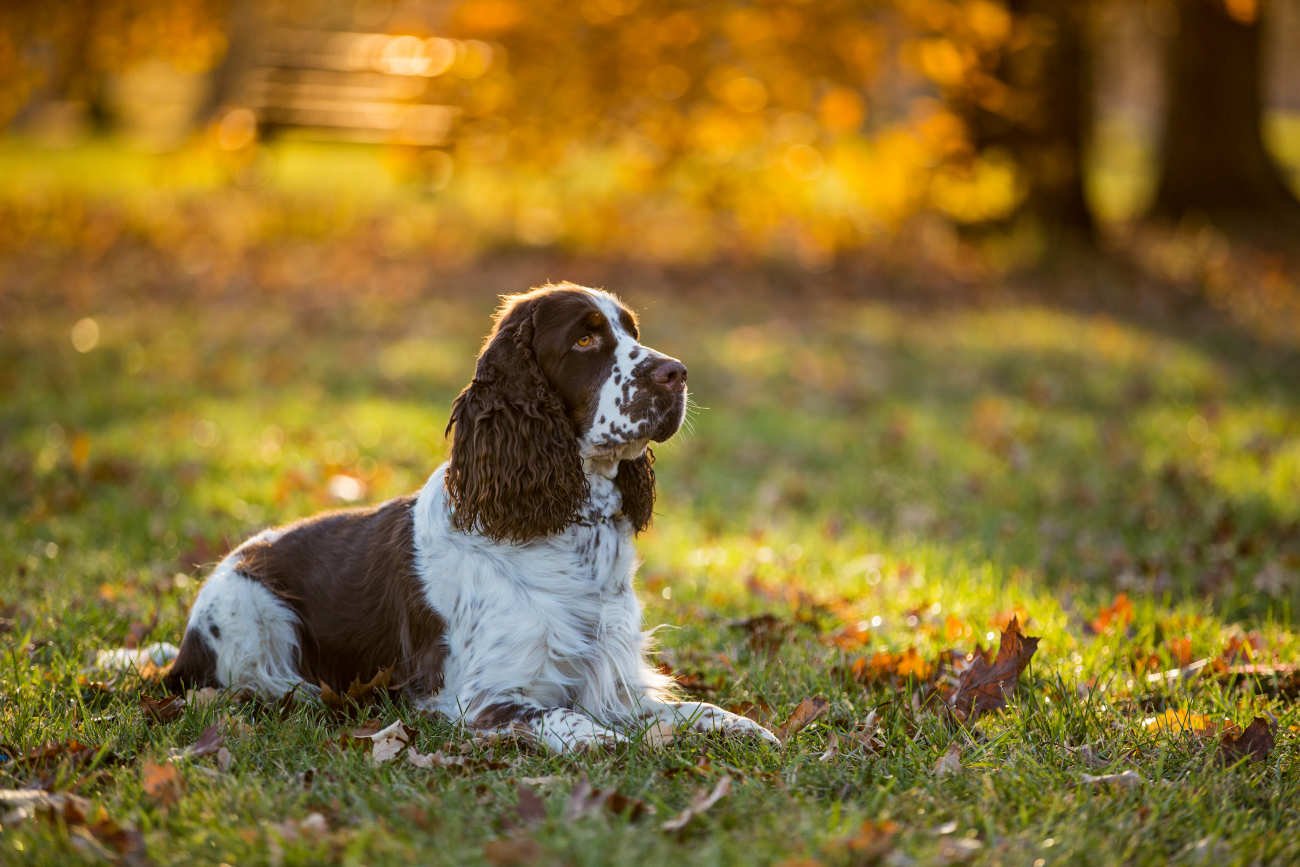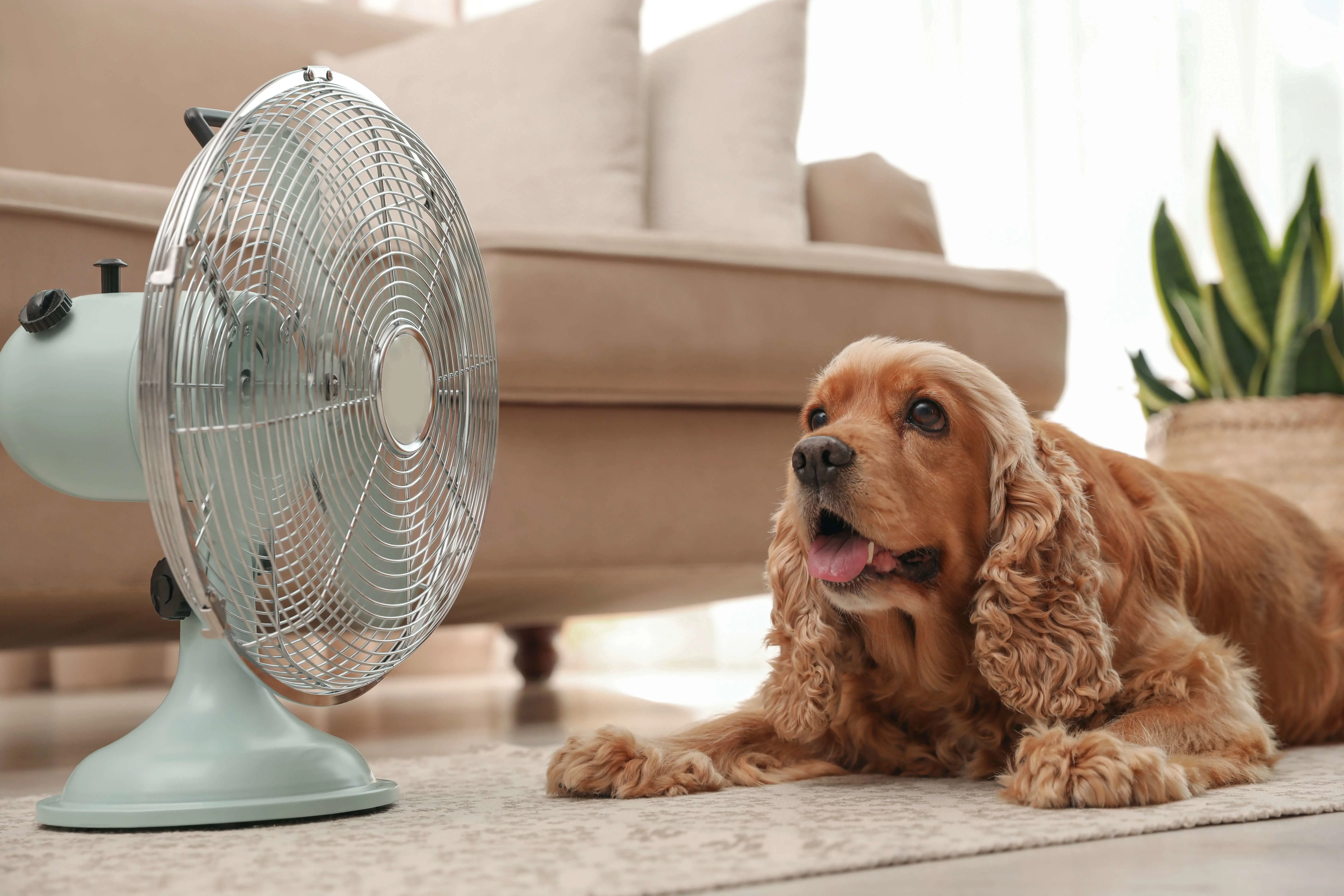Which dogs make the best running partners?
23rd December, 2019
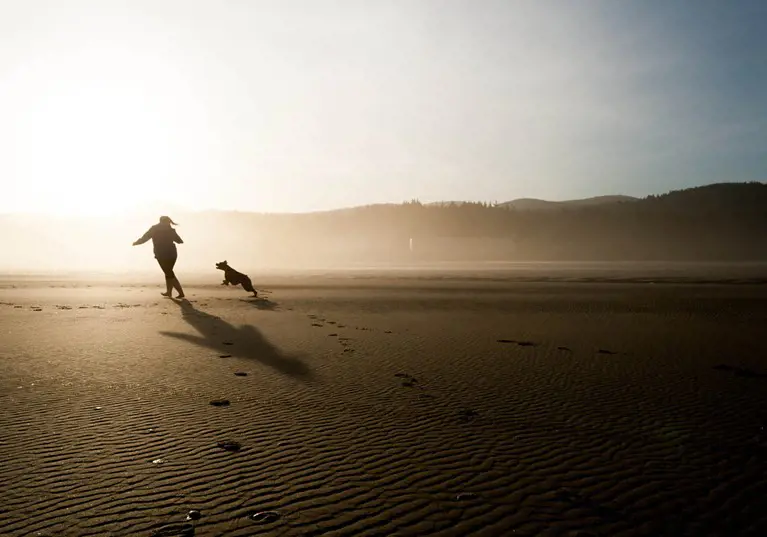
Running as a doggy-and-human duo does wonders for the health of the owner and the pooch alike. A good dose of physical activity will help to boost longevity and mental health, all while deepening the unique bond between the two of you.
Certain breeds need more exercise than others, so it’s essential to factor in your hound’s fitness level, age, size and ability before planning a fitness programme.
You may find that running together provides the perfect opportunity to fulfil some of your pooch’s daily exercise needs, keeping them in tip-top condition.
Of course, you can never rule out the chances of illness, accident or injury occurring, which is why dependable pet insurance is a must.
Purely Pets provides specialist pet insurance with a range of benefits like a 24-hour vet helpline and easy online access to your policy documents.
We love running with our dogs, too, so take a look at our list of the top canine running buddies!
German Shorthaired Pointer
Ideal for: speedy runs; lengthy runs; trail running
Bred to be hunting dogs, it’s no surprise that German Shorthaired Pointers are filled with seemingly inexhaustible energy.
Their strong, medium-sized build enables them to endure long distance running and high speeds.
Jack Russell
Ideal for: lengthy runs
Don’t let the Jack Russell’s diminutive size fool you: these pooches are balls of energy, able to keep up with much larger hounds.
Extra alert, active and playful, you’ll need to give this breed plenty of exercise, so if you’re an avid runner, the two of you will be a match made in heaven.
The breed’s small size makes them ideal for venturing further afield, should you wish to take them off the beaten track.
Do note: these furballs are natural hunters, so make sure yours is thoroughly trained before letting them off the leash – otherwise your four-legged partner might go astray.
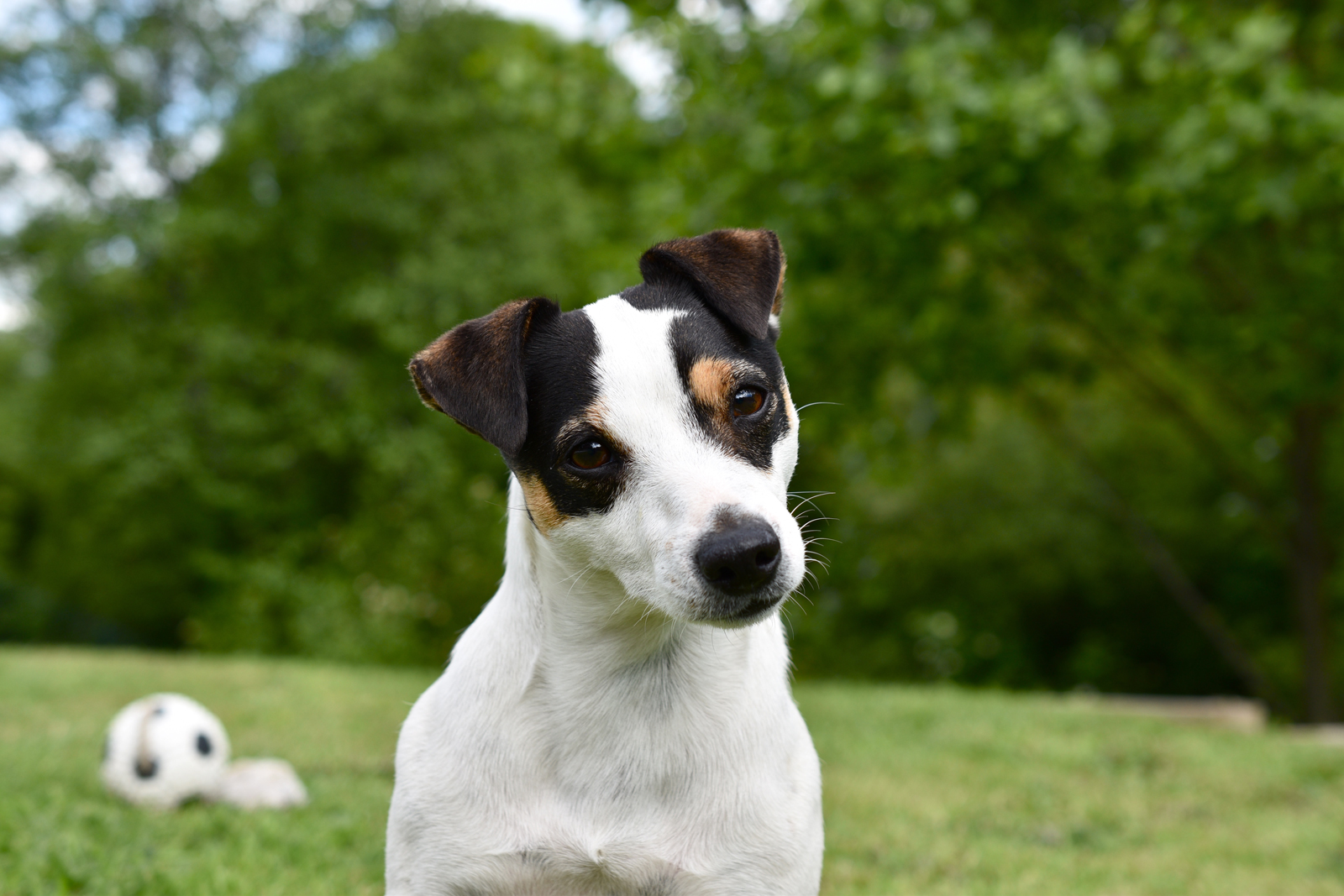
Malamute
Ideal for: running in colder temperatures
The UK is infamous for its long, cold and icy winters, and many a pooch is reluctant to step aside on a winter’s day.
If you’re seeking a hardy dog that’s willing to go running with you in sub-zero temperatures, opt for a Malamute; their chunky build and thick, lustrous coat make for the perfect winter armour.
Originally bred to work as sled dogs, this breed is an exercise and work addict.
Weimaraner
Ideal for: speedy runs; lengthy runs; trail running
These sleek, elegant pups love their humans. Combine this with their muscly, medium-sized build and you have the perfect running companion.
They need a great deal of mental and physical stimulation, so they’re well suited to active owners.
Siberian Huskie
Ideal for: running in colder temperatures; speedy runs
This breed is highly athletic and requires plenty of physical activity.
Agile and fast-paced, a Siberian Huskie is happiest running in a colder environment, but can manage running in spring and autumn – just don’t expect them to join you in the summer heat.
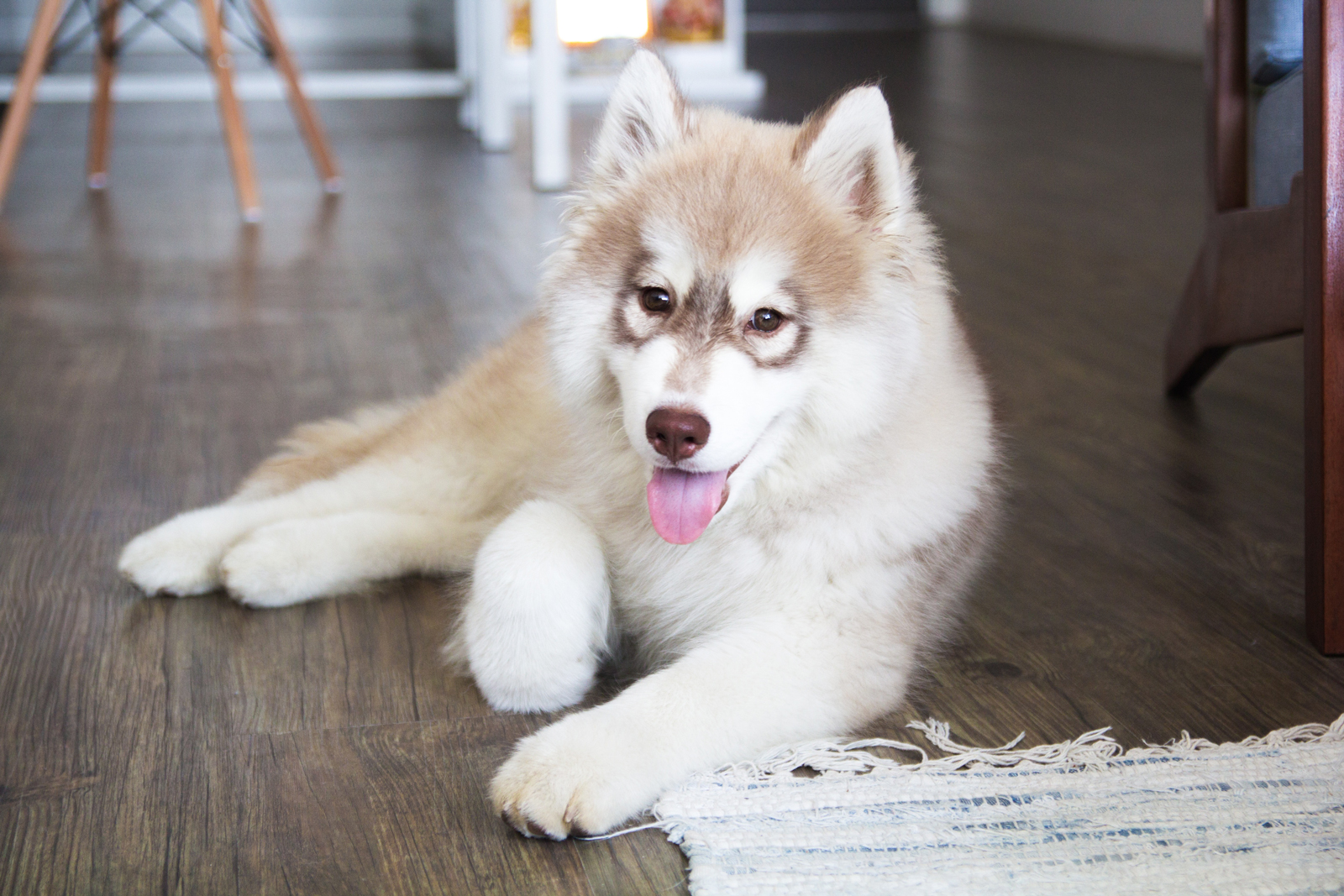
Belgian Sheepdog
Ideal for: short, speedy runs
This breed is very receptive to firm training, so make sure to take the time to lay down good behavioural patterns – the Belgian Sheepdog’s history as a herding pooch means problem nipping can develop if it’s not addressed early on.
Once you’ve trained your pal, they’ll love setting off on fast-paced runs with you, as they have plenty of energy to spare.
Fox Terrier
Ideal for: running in warmer temperatures
These fiercely independent hounds need focused training from early puppyhood on – if not, you’ll find it hard to develop a strong recall in your four-legged friend and will have to resort to a lead.
Once trained, these little guys make fantastic running buddies, as they’re full of zest and love to socialise.
Beagle
Ideal for: short, speedy runs
A pooch with an enquiring mind and bags of energy, pick a Beagle if you want a spritely pal to come along with you on fast-paced runs.
If yours is particularly hunt-orientated, it’s possible they’ll be able to sustain activity across slightly longer distances – but every pooch is different.

Dalmatian
Ideal for: long, evenly paced runs
Love long-distance trails or preparing for a marathon? A Dalmatian will be your ideal training buddy.
This breed is one of the top long-distance pooches, and they can’t get enough of outdoor pursuits.
Try to run along softer trails and avoid the pavement, as the Dalmatian’s large build means the impact of running on harder surfaces will put unnecessary pressure on their joints.
Springer Spaniel
Ideal for: short, speedy runs; occasional longer runs
Another canine with boundless energy, these clever pups need lots of exercise in order to stay physically and mentally stimulated.
Bred to be working dogs, they love to exert themselves, especially in the company of their beloved humans.
Pharaoh Hound
Ideal for: short, speedy runs
Not a fan of long-distance running, but love a little burst of exercise? The Pharaoh Hound was made for you.
These elegant furballs don’t require lengthy workouts, preferring to go for a short, brisk daily run.
Bred to be hunting canines, they’ll try to set a fast pace, which is no bad thing – just make sure they’re well trained, as otherwise their hunter’s instinct to chase could override obedience.
Border Collie
Ideal for: running in colder temperatures; long, evenly paced runs
Intelligent, athletic and highly energetic, a trained Collie can make an exceptional, agile running partner.
Their relatively thick coats keep them warm in colder conditions, but avoid taking them out in the snow: it can become caught in their fur, chilling them down to dangerous temperatures.
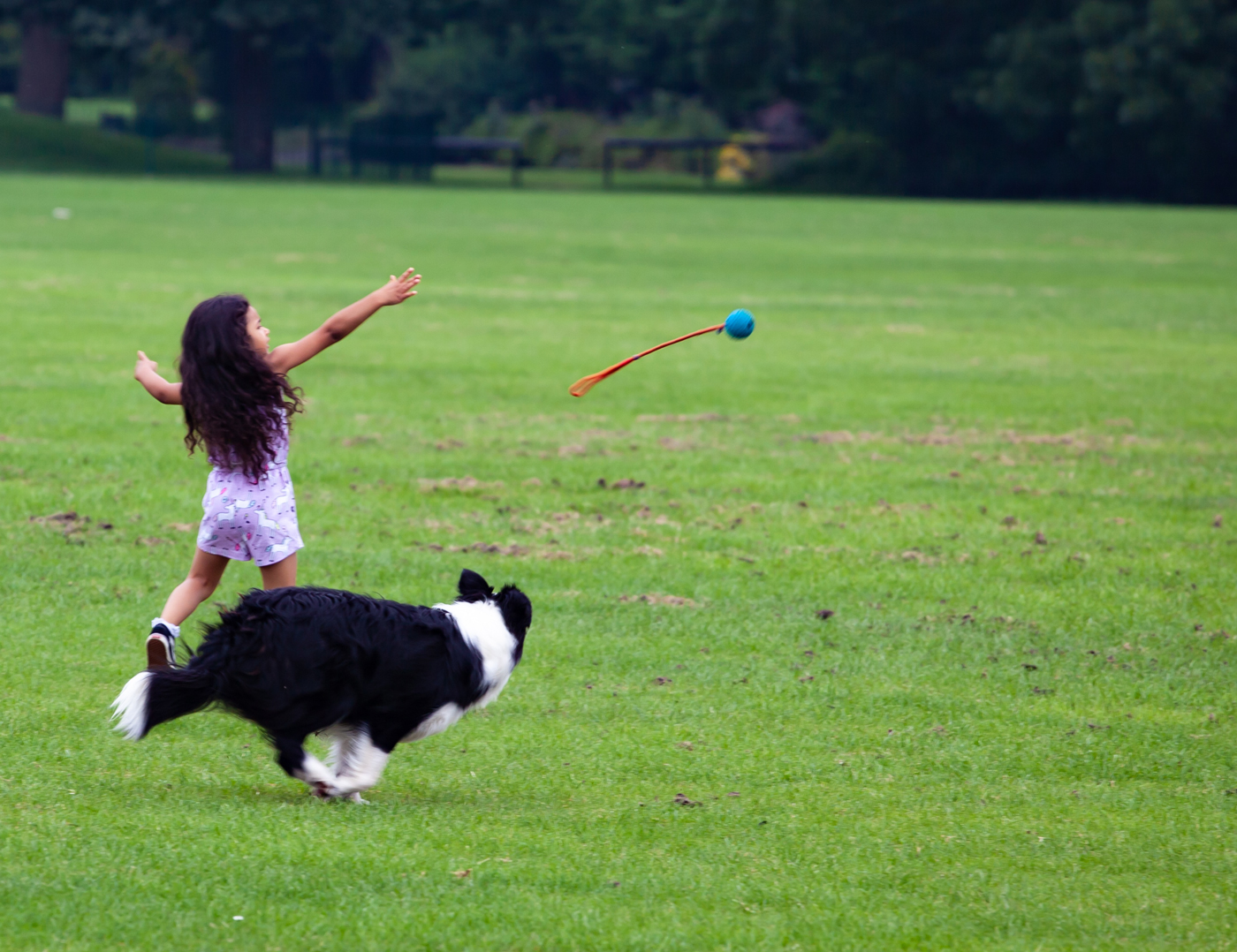
Greyhound
Ideal for: short, speedy runs
Famed for their prowess on the racetrack, Greyhounds are adept at short-distance, fast bursts of exertion.
This breed is loving and affectionate, so will enjoy nothing more than accompanying you on your daily jog.
Catahoula Leopard Dog
Ideal for: long, evenly paced runs
A pooch with a dedicated work ethic, the Catahoula needs plenty of exercise. As long as you give this pup enough physical stimulation, they make for mellow pets.
Golden Retriever and Labrador
Ideal for: short, speedy runs; slow-paced long-distance runs
These two breeds share similar qualities as running partners.
They’re incredibly devoted to their humans, have friendly demeanours, hefty bodies and are receptive to training: all of these elements make them fantastic companions for your habitual run.
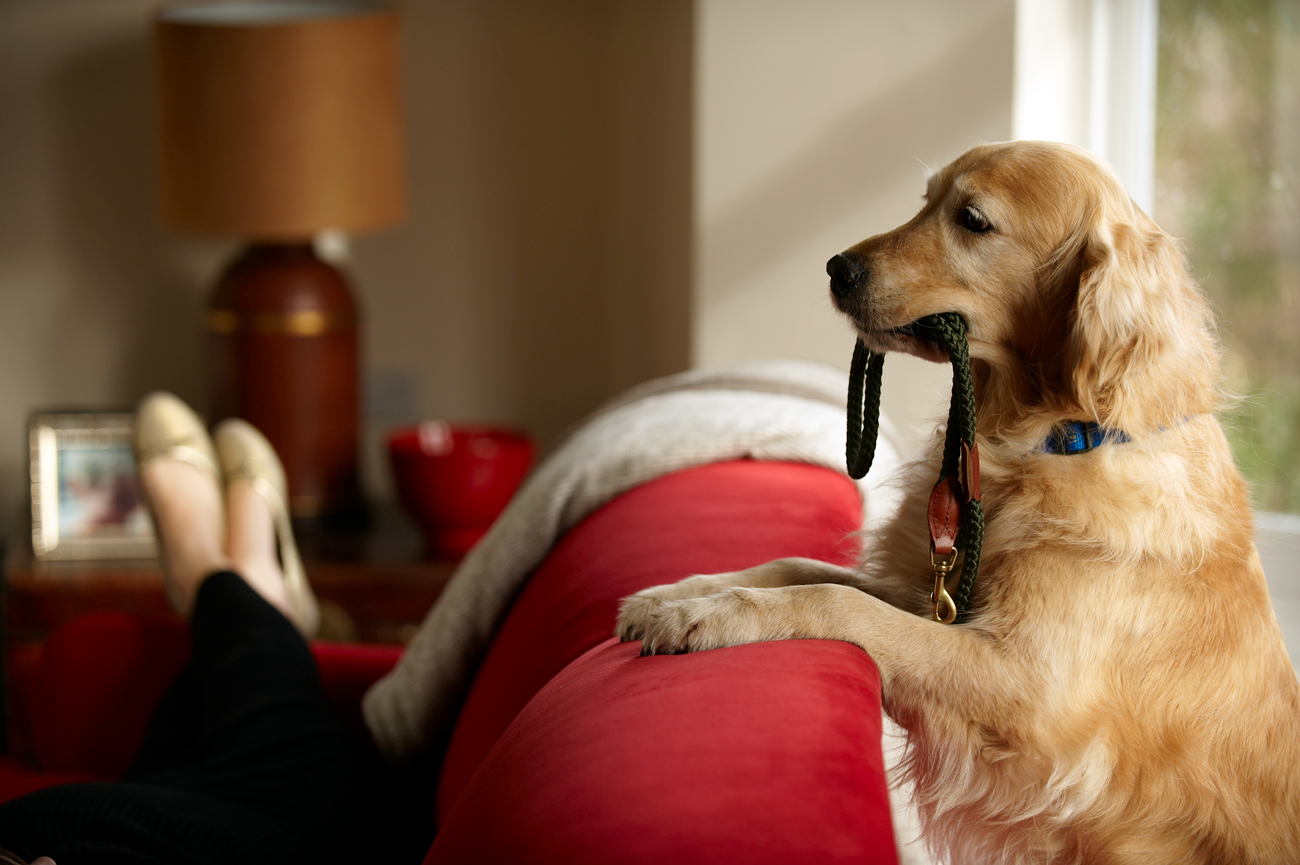
Rhodesian Ridgeback
Ideal for: running in warmer weather; long, evenly paced runs
If you want a running pal come rain or shine, a Rhodesian Ridgeback is a smart choice. These strong, sturdy dogs can run in heat, plus they have a natural drive and gait perfect for long-distance runs.
German Shepherd
Ideal for: running in colder temperatures
The German Shepherd needs a great deal of strenuous exercise, so a running household is a good fit for this breed.
Their cosy fur coats keep them nice and toasty outdoors, while their intelligence and love of physical activity make them pleasant jogging companions.
Vizsla
Ideal for: running in warmer weather; speedy runs; lengthy runs; trail running
You shouldn’t commit to a Vizsla unless you’re certain you can provide an hour’s worth of exercise a day.
Vizslas are the dream running partners, as they’re incredibly versatile – those long legs can go for miles.
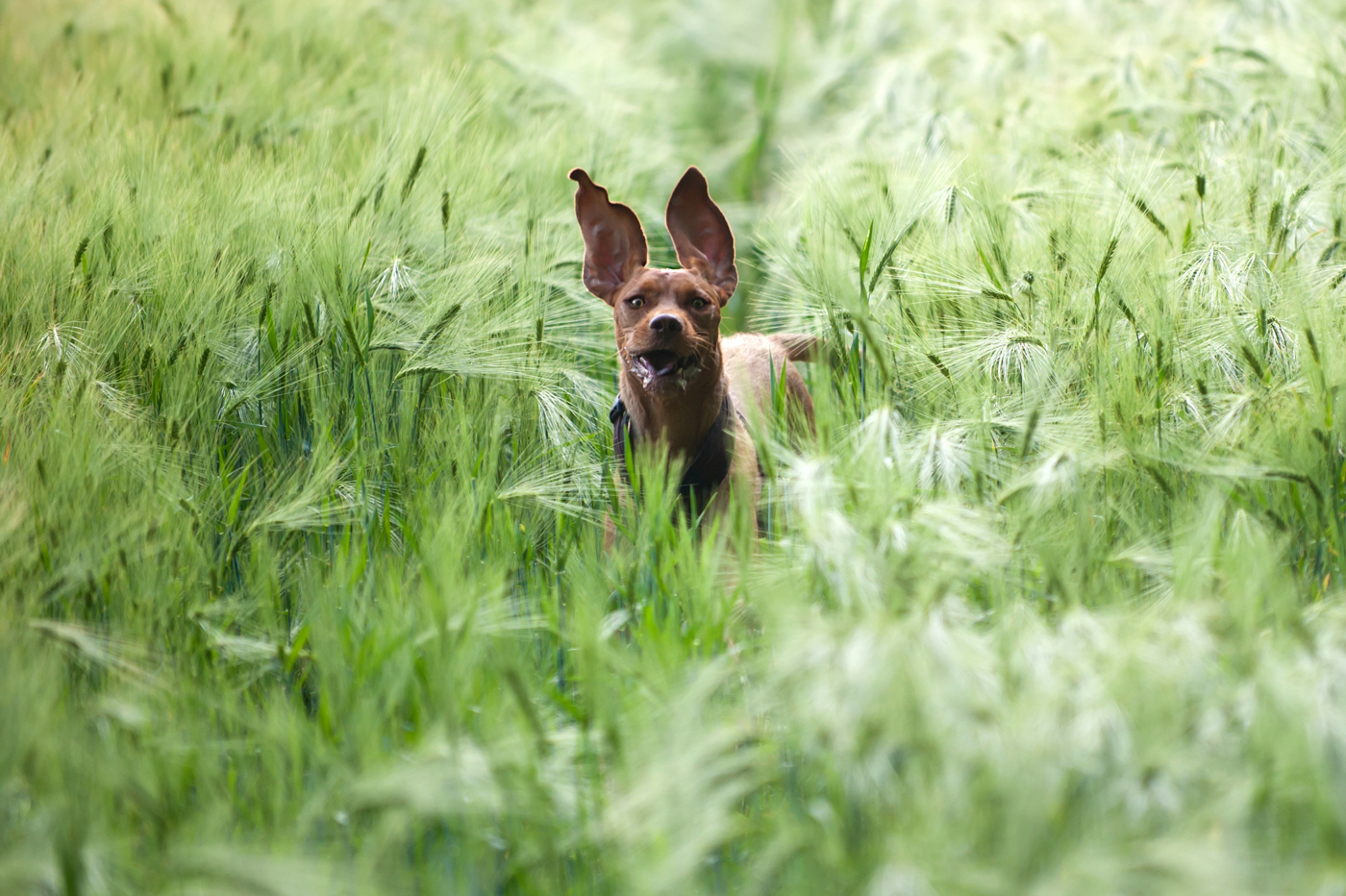
Staffordshire Bull Terrier
Ideal for: short, speedy runs
These canines may be brawny, but don’t let that solid build fool you: they adore running free with their owners and need to expend plenty of energy to stay happy and balanced.
They love an active outdoor lifestyle and are immensely loyal to their humans, so they really are wonderful running buddies.
Mongrel
Many pedigree pups suffer from hereditary issues linked to their joints or breathing, so running may exacerbate their discomfort.
In comparison, these genetic problems may have been bred out in mongrels, so they often make fantastic athletes – depending on their mix.
Standard Poodle
Ideal for: long, evenly paced runs
Not a natural exercise fan? Bring a Standard Poodle along and you’ll never have a boring jog again.
An incredibly playful partner in crime, this breed will cause plenty of entertaining diversions during your daily workout together.
Better yet, they’re happy to get stuck in, leaping through streams and generally having a ball wherever you venture.
They require robust lead training first: this way, they’ll be under control when the two of you head out on a run.

English Setter
Ideal for: short, speedy runs
This breed has a nice balance of stamina and strength. The English Setter loves to play and will happily come along on brisk, short-distance runs.
Swiss Mountain Dog
Ideal for: running in colder temperatures; short runs
A relaxed and loving pooch, this gentle giant was bred to work as a farm dog, so is always game for a short run with their human.
Swiss mountain dogs also make great family pets, due to their sweet, mellow nature.
Portuguese Water Dog
Ideal for: challenging trails; long, evenly paced runs
These adventurous furballs are full of affection, energy and fun, enjoying more dynamic trails with obstacles as well as long-distance jogs.
This working breed craves physical exercise – they’re even happy to get their paws a little wet, unlike homebodies such as Pugs.
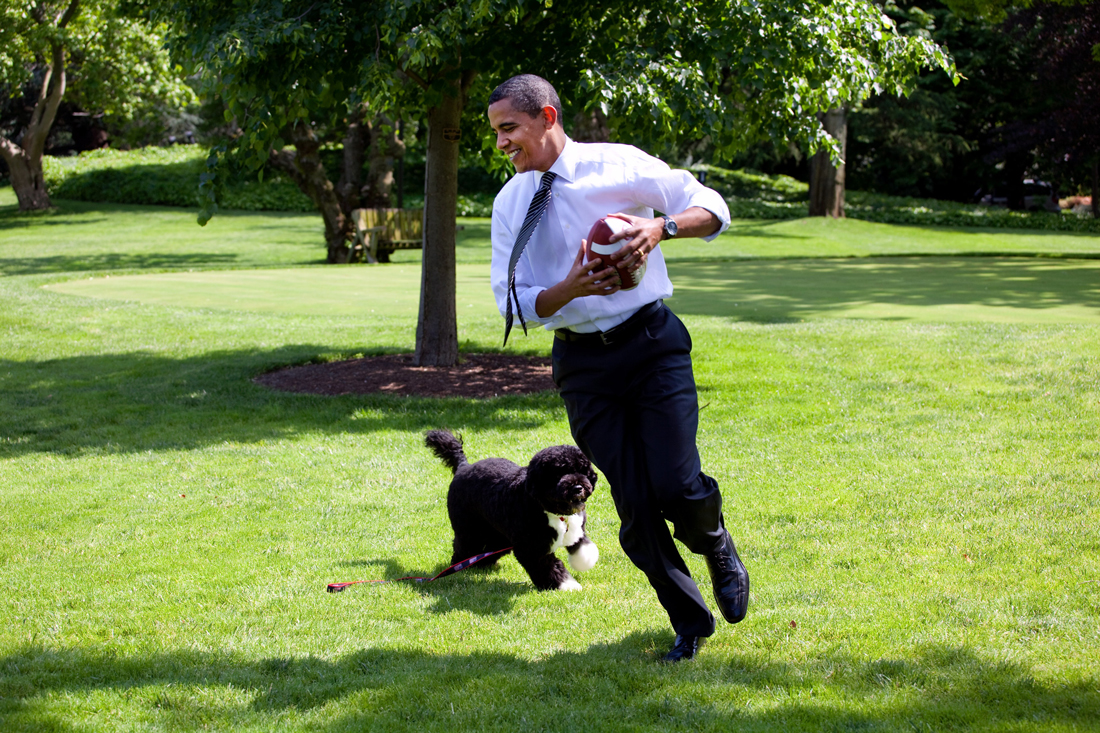
Australian Shepherd
Ideal for: challenging trails
Agile, quick-footed and a natural athlete, the Australian Shepherd will run with you all day, if you wish – plus, they’re absolutely beautiful.
Lurcher
Ideal for: short, speedy runs
A lurcher is categorised as a sighthound, which means the breed hunts by speed and sight instead of endurance and scent.
As a result, they’re ideal pals for brief, brisk runs rather than long-distance endurance training.
Keeping your dog safe
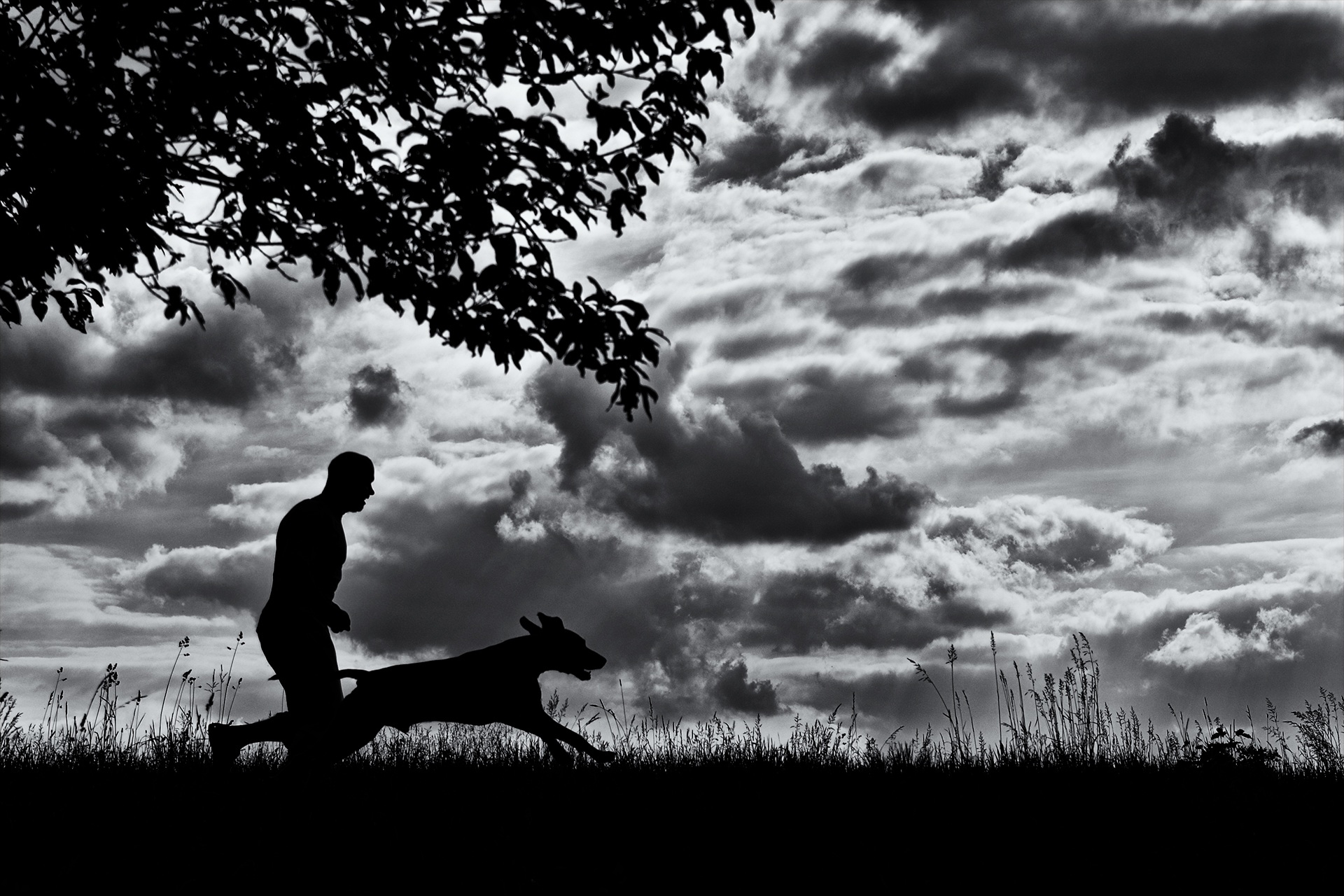
You’ll need to take the following steps to protect your running buddy’s long-term health:
Visit the vet
It’s best to get your four-legged friend fully checked by a vet, before embarking on any ambitious exercise programmes together.
Your vet can help you assess what kind of workout will be best suited to your pooch, advising on the length and intensity of exercise sessions, considering factors such as breed and any specific needs unique to your pup.
Certain breeds are designed to endure long-distance running, while others are better suited to shorter bursts of exercise, so it’s important to ensure you don’t push your dog beyond what’s healthy for their size and build.
Build fitness
Just as humans need to start slow, canines do, too – especially when they’re elderly or need to shift some weight.
Begin every exercise session with a gentle walk as a means of warming up together, working around your pooch’s present fitness level.
Stay vigilant
Your pup can’t verbalise when they’re dehydrated or exhausted, but you can keep a close eye on them, watching out for signs of fatigue and offering them fresh, clean water at regular intervals.
Regularly examine their footpads: if they appear worn down you may need to decrease the intensity of your runs or pick a different terrain - baking hot ground or trails covered in sharp debris aren’t pleasant for your canine running partner.
Avoid going out for runs in high temperatures or in humid climates – it’s best to work out in the morning or evening, as these tend to be the coolest times of the day.
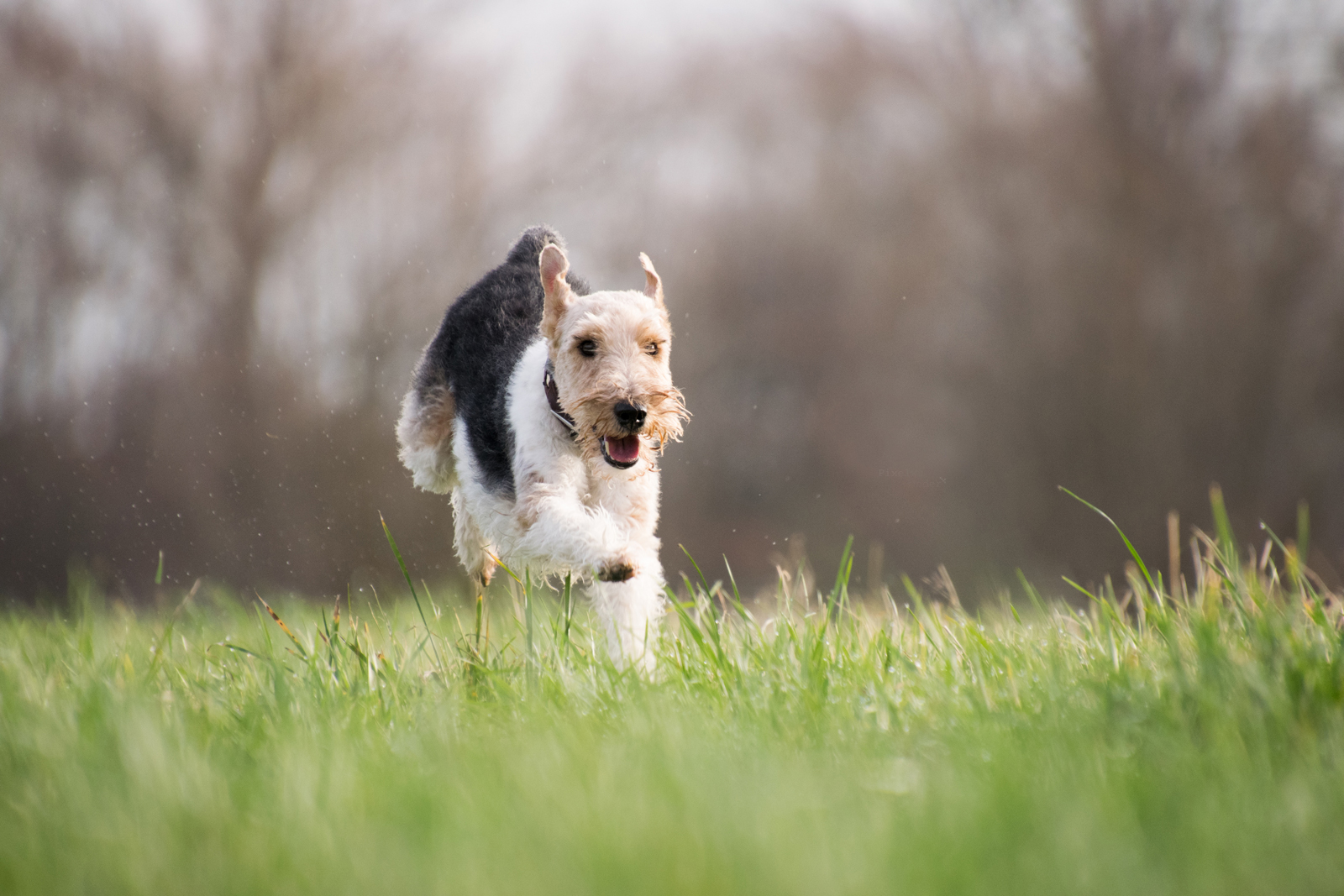
Don’t forget a lead
However well trained your pooch is, always bring a lead along, even if the two of you are running in a relatively secluded area.
While it’s best to let a canine run free, if your route involves jogging through public zones you may want to pop your pooch on a lead.
Make sure you use a harness in tandem with the lead, as this helps minimise the pressure placed on your hound’s neck.
Secure reliable pet insurance
Covering your canine with dependable pet insurance should be top priority, from day one of doggy ownership.
You never know when your pooch might become injured or ill, especially when you’re out and about, leaving you saddled with expensive vet bills.
Purely Pets understands how much you love your four-legged friend. We’re here to help you give your pooch the best possible quality of life with our straightforward pet insurance.
Take care of your pup and get a quote today.
Helpful Pages
Recent Posts
Pet Insurance Quote
- 98% claims paid *
- Claims paid directly to vets
- 24/7 vet video consultations
- Interest free monthly payments
